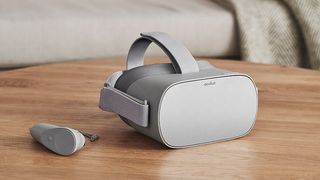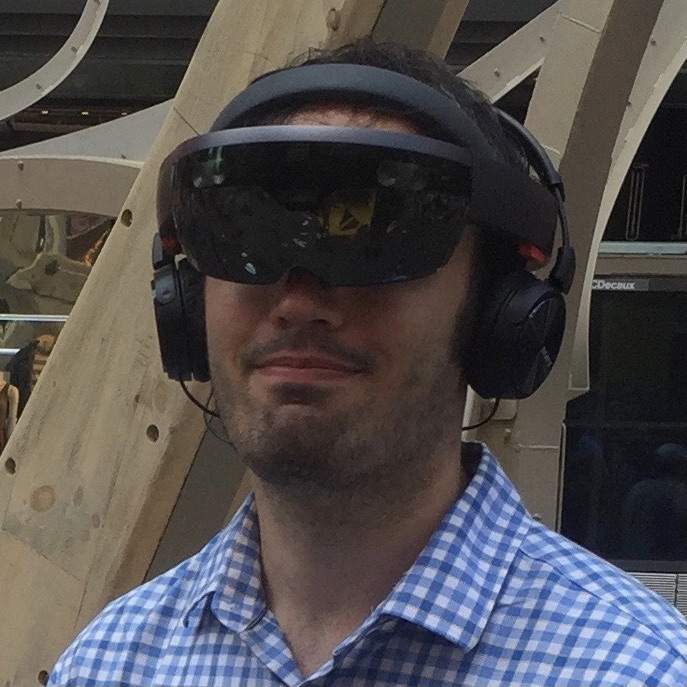Oculus Go performs 'significantly better' than Galaxy S7 in a Samsung Gear VR
The upcoming Go out-clocks the mobile competition, according to Oculus CTO John Carmack

If you have any technical questions about the Oculus Go headset, just tweet John Carmack, Oculus Chief Technology Officer, and he’ll probably have an answer.
In a Twitter exchange with a curious Samsung Galaxy S7 owner, Carmack assured them that the Oculus Go mobile VR headset will perform “significantly better” than an S7 in a Samsung Gear VR headset.
Yes, significantly better. BTW, did someone from support get in touch with you about the video regression? There is a task open.February 23, 2018
Both devices’ CPUs are similar – the S7 has the Snapdragon 820, while Oculus Go will have an 821 – but the Go’s processor will be solely dedicated to its apps and videos, and has 'dynamic clock scaling', which improves frames per second (FPS) and performance, and which is only present in the Galaxy S8 onwards.
Go does dynamic clock scaling above the minimum fixed levels, like s8, so everything runs better than s7February 26, 2018
Newer smartphones like the Galaxy S9, which uses the Snapdragon 845, may already have surpassed Go’s maximum capabilities by the time the phone launches on March 16. But again, Carmack’s “significantly better” assertion suggests that the headset is intended to surpass our expectations.
Carmack also took some time to address whether Oculus Go will support casting VR to your TV, which Gear VR does support. He says the tech is being worked on, but that he “doesn’t think it is going to be ready on day 0.”
Predicting performance
Leaked photos from last month show the Oculus Go will support "1,000 apps, games and movies" at launch, including Netflix, Hulu and Facebook, and come in at least a 32GB storage option. We also know that its LCD display will support 2560 x 1440 resolution, and that it will sell for $199 (about £150, AU$255).
Carmack’s Twitter exchange begs the question of whether the Go’s “significantly better” performance over a Galaxy 7 will convince buyers to jump in on the headset. Those 1,000 apps will likely come mostly from the Gear VR library, perfecting visuals for already accessible mobile content. And even Carmack can’t clock a Snapdragon 821 up to play the kind of VR you’d see on an Oculus Rift or HTC Vive.
Get daily insight, inspiration and deals in your inbox
Get the hottest deals available in your inbox plus news, reviews, opinion, analysis and more from the TechRadar team.
Once the Oculus Go finally releases – it’s slated for early 2018, though we’re still waiting – we’ll have to see how the Oculus Go compares to VR you can experience through a Galaxy 9 or Google Pixel 2. Hopefully, Oculus hasn’t waited too long.
Via Upload VR
- Oculus Go review: standalone VR comes of age
Michael Hicks began his freelance writing career with TechRadar in 2016, covering emerging tech like VR and self-driving cars. Nowadays, he works as a staff editor for Android Central, but still writes occasional TR reviews, how-tos and explainers on phones, tablets, smart home devices, and other tech.

